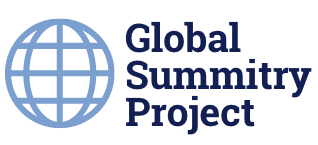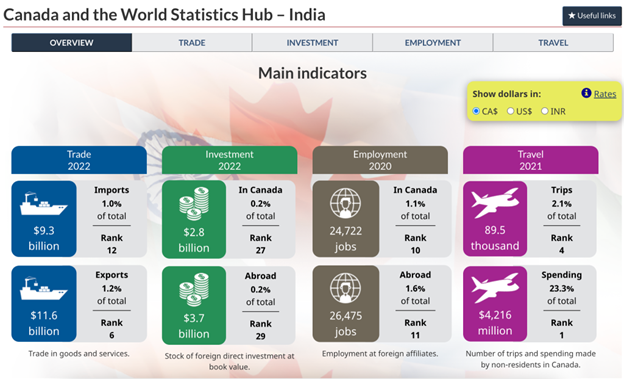
Luis Felipe Mussalem
Luis Felipe Mussalem is an emerging journalist based in Toronto focused on data analysis and academic research. He has contributed to publications like The Toronto Observer and the J Source. He is a student at Centennial College and contributed to the Global Summitry Project as a learning experience in 2023.
The crisis in Indo-Canadian relations shows how swiftly two countries can find themselves engaged in a very public diplomatic dispute.
In a matter of weeks from the Sept. 2023 declaration of Canada’s prime minister, Justin Trudeau, linking India’s government to the murder of a Canadian Sikh activist in Canada, diplomats from both countries have been sent home and travelers have been warned of increased risks.
Keeping up with such dramatic changes is challenging, but the current situation provides an opportunity to understand the role of diplomacy in country-to-country relationships.
According to Global Affairs Canada, the agency responsible for the nation’s relationship with other countries, India and Canada share 55 years of bilateral programming. Both former British colonies and trade partners, they established diplomatic relations in 1947.
There were more than 110,000 Indian immigrants in Canada in 2022, Forbes reports. But Indian-Canadians are not the only ones worried about how their leaders deal with matters of diplomacy and its importance. In a 2019 study, looking more broadly at what Americans thought about foreign policy, the Pew Research Centre points out that 73 per cent see good diplomacy as the best way to ensure peace between countries.
A look back at the history of diplomacy
Diplomacy is the state-to-state relationship that focuses on how countries represent their own interests and values with other states. Officials generally responsible for expressing the country’s interests to other governments are called diplomats. They are sent all over the globe on diplomatic missions. There, the professionals advocate for the country they represent, approve the budget for foreign aid, analyze current affairs, and much more.
The continuing interaction between governments leads countries to establish embassies in the national capitals of the host country. There, a lead diplomat is appointed by their government as ambassador, the senior role in the embassy.
Nations may also have consulates in foreign territory. These consulates are mostly responsible for dealing with legal matters of the citizens they represent. For example, the U.S. has an embassy in Ottawa, led by Ambassador David L. Cohen. Yet, there are U.S. consulate general offices in other cities in the country including Toronto, Montreal, and Vancouver.
Diplomatic relations between countries can be traced back centuries. Communities had to find a mechanism to convey messages across cultures and different societies. While Mesopotamia and Mayan groups explored relationships with their neighbours, embassies and consulates have been around certainly in modern guise since the 18th century and indeed earlier. A lot has happened since then, but nowadays diplomacy is seen every day with summits, conferences, and meetings between world leaders.
Poornima Pawar is an Indian lawyer who specializes in international development. She also represented India in the Commonwealth Youth Council between 2020 and 2021.
(Editor’s note: Pawar is also a student advocate at Centennial College Student Association Inc., where the author is a campus vice-president.)
“Diplomacy is of paramount importance to international law,” she said in a Zoom interview from Toronto. “It has far-reaching implications in the lives of their citizens because it promotes peace and stability on a global scale. And we know that when this does not happen, there can be disastrous events.”
As the world became more connected, countries tended to invest more in diplomatic relations. Today, resolutions made by leaders and diplomats influence the lives of many, and that’s how diplomacy operates. From renewable energy to the export of products and services and investments, these elements of connectedness influence the economy and the overall well-being of nations.
Understanding the structure of Canadian foreign affairs
According to its website, Global Affairs Canada “defines, shapes, and advances Canada’s interests and values in a complex global environment.” It manages Canada’s humanitarian assistance and diplomatic relations. The body is also responsible for issuing travel advisories, sanctions, and administrating customs policies.
Dr. Nipa Banerjee is a foreign aid and international development professor at the University of Ottawa and a former Canadian diplomat who has worked in countries like Afghanistan and Indonesia. She highlights that diplomats come from various fields of work.
“Diplomacy always involves development. There are groups of diplomats at various levels of their career for the sake of promoting foreign development, aid, and political and economic relations. Specialization in particular fields is very important,” she said in a telephone interview.
The structure of how these affairs are administered can vary across the globe. In Canada’s diplomacy, maintaining relationships between countries and protecting Canadians overseas requires many workers, and according to Statistics Canada, Global Affairs Canada employs more than 7,000 people. The diplomatic roles include high commissioners, who are similar to ambassadors. These diplomats are professionals assigned to serve and lead permanent missions. In the Commonwealth of Nations, a high commissioner is a senior diplomat (ranking as an ambassador) in charge of the diplomatic mission of one Commonwealth government to another.
The risks of poor diplomatic relations
Relationships between countries can take a long time to change for the better. A notable instance is when the U.S. withdrew diplomatic recognition of Cuba in 1961. For many years, both countries were represented only by branches of Swiss embassies in Havana and Washington, respectively. When this happens, services for citizens can be limited, and relations on a state-to-state level can remain tense and unproductive.
In 2018, the United Kingdom and Russia had a tit-for-tat interaction like the current Canada and India dispute and the earlier U.S. and Cuba one. Both countries expelled diplomats who were accused of espionage, the BBC reported.
Without a diplomat, and in the worst case without an embassy, there is no local representation for citizens who live abroad in that country. A contemporary example occurred when the U.S. shut down its embassy in Iran in 1979. It was a political decision that had lasting consequences, and it is a symbol that communication between two countries can be limited or even non-existent. In some instances, all staff, including drivers, security guards, translators, and assistants, must leave the country as soon as possible.
“It [diplomacy] is also essential for the protection of human rights and the rule of law. There are coordinated efforts to apprehend terrorists, criminals … all of this is only possible with strong diplomatic ties,” Pawar says.
In the case of India and Canada, years of good bilateral relations can be compromised by current tensions. Depending on the disputes, the consulates of both countries might also be at risk, meaning that they can soon limit their services and in the worst-case scenario, shut down.
Global Affairs Canada points out that as of 2022, India was Canada’s 10th largest trading partner, a reality that might soon change considering the fallout.
Pawar and Banerjee highlight the importance of diplomacy in international development and foreign aid in an era of closer economic relations.
Banerjee also pointed out how important cultural knowledge is for diplomats. While serving in Afghanistan in 2001, she said she faced challenges being a woman who believed in gender equality.
“It is a reality that the Taliban is in power, and we have got to do something in diplomatic means to engage with them and get certain issues resolved,” she said.
With that, it is possible to understand the importance of the efforts being made not only to ensure peace but also economic prosperity in an ever-changing world.
“As an emerging economy, India engages with many diplomatic activities to sustain the country’s economy and values, like when it joined the G20. What intrigues me the most about Canada is its emphasis on multilateralism, which focuses on the interest many countries have in common,” says Pawar.
On Oct. 22, Reuters reported that the Indian government said relationships with Canada are “passing through a difficult phase.”
Subrahmanyam Jaishankar is India’s minister of foreign affairs. “I do want to say the problems we have are with a certain segment of Canadian politics and the policies which flow from that,” he said at an event, according to Reuters.
“We haven’t made much of that public. My sense is over a period of time more stuff will come out and people will understand why we had the kind of discomfort with many of them which we did”, Jaishankar said in a video clip shared by ANI News and reported by Reuters.

